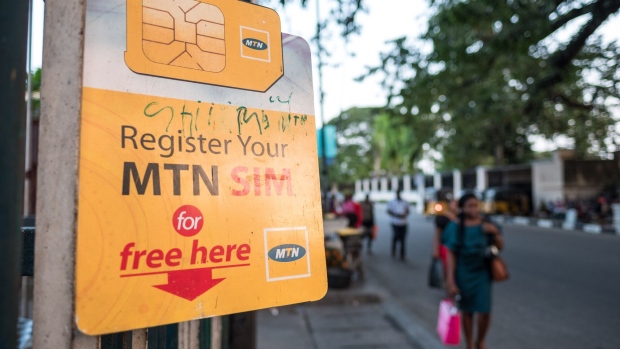Apr 18, 2024
Nigeria to Criminalise Fiber Cable Damage Costing Telecoms Billions
, Bloomberg News

(Bloomberg) -- Nigeria will criminalize the destruction of broadband fiber cables following repeated complaints by MTN Nigeria Communications Plc and other telecommunications companies that they are losing billions of naira, according to people familiar with the matter.
Nigeria’s works ministry, which supervises federal road constructors, is finalizing the regulation that will be signed as an executive order by President Bola Tinubu, said the people, asking not to be identified as they weren’t authorized to comment. While there are presently laws against vandalism, the authorities are aiming to regulate construction firms more closely.
The order will enforce stiff penalties on offenders, said the people, declining to provide more details or say when it will be signed.
“Telecom assets are critical backbone that supports the economy across sectors,” said Temitope Ajayi, a senior presidential aide, who noted that the Association of Telecommunications Companies has been demanding the classification for years. New rules will provide “further assurance that the Nigerian government will protect their investments against vandals and criminal elements.”
The Nigerian Communications Commission estimates that the sector will make up more than a fifth of the country’s gross domestic product by the end of 2027, up from 13.5% in the third quarter of last year.
Alleviating Pressure
The move will help alleviate pressure on the telecoms sector, which is facing increased operating costs and sales pressures from a sharp depreciation in the currency and a threefold increase in energy prices.
Repairs and revenue losses from damaged cables is estimated to have cost the sector almost 27 billion naira ($23 million) last year alone, documents seen by Bloomberg show. MTN Nigeria, the biggest wireless operator in Africa’s most-populous nation, and Airtel Africa Plc bore the brunt of the costs, the documents show.
MTN suffered more than 6,000 cuts on its fiber cable last year, the documents show. On Feb. 28, a cut on its network in three different locations by a road construction firm, an oil serving company and someone burning rubbish in a manhole meant customers faced more than five hours of data and voice outages.
The operator relocated 2,500 kilometers (1,553 miles) of vulnerable fiber cables between 2022 and 2023, at a cost of more than 11 billion naira - enough to build 870 kilometers of new fiber lines to areas without coverage.
A presidential order on the matter would be welcomed, said Tony Izuagbe Emoekpere, the head of the Association of Telecommunications Companies of Nigeria.
“When it comes to communication infrastructure, they are destroyed at will, so we are eagerly awaiting the president’s order,” he said. “It would be a great boost to the industry, and it will also encourage investment.”
©2024 Bloomberg L.P.





